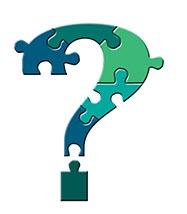When someone dies, one of the first questions that close relatives usually have is whether they are personally responsible to pay the credit card bills of the decedent. They may even start getting telephone calls from creditors asking them to pay outstanding balances.
Close relatives may also want to know: Who is responsible for paying the mortgage of the decedent? If they are entitled to inherit money, can they take their share regardless of the creditors? This article will discuss estate debt issues and the more specific issue of whether a creditor has a right to attach non-probate assets of the decedent.
First, let's briefly review the process.
Probate assets are assets that are in the name of the decedent only. So if the decedent had a bank account in his or her own name and no beneficiaries are named on a pay-on-death form, the money in the account would “pass through” probate. If the decedent held the bank account jointly with another individual (such as a spouse), in the majority of cases money in the bank account would pass directly to the joint account holder outside of probate.
Likewise, if a house was in the name of the decedent only, it would pass through probate. If the decedent owned the house with someone, as joint tenants with rights of survivorship or with a spouse as tenancy by the entirety, the house would pass directly to the joint owner and outside of probate. This is also true when decedents have beneficiary designations in pay-on-death bank accounts or transfer-on-death brokerage accounts.
So, what rights do creditors have to reach the assets of the decedent to pay off the debts? A creditor can file a claim against an estate for payment of the debt. The executor or personal representative must pay the creditors from probate assets before a final distribution of money is made to heirs. If the personal representative distributes money to heirs when debt is outstanding, a creditor can file a claim or lawsuit against:
The heir(s) for the return of the money; or
The estate executor or personal representative if the individual refuses to file a petition to have the heir turn over the money to the estate.
What if there is no money in the estate to pay creditors? A creditor may look to non-probate assets to pay debts. This may happen if there is an indication that the assets of the decedent were large and if there was a transfer of money in order to avoid the debt.
For example, let's say an individual owes $100,000 to a credit card company and puts assets in a joint bank account prior to death to avoid payment of the debt. The credit card company can file a claim for the money. Creditors could demand that the beneficiaries who inherited assets use them to pay some or all of the debt.
Retirement Accounts, Insurance, Trusts
When it comes to creditors, not all assets in an estate are handled in the same way. Retirement account assets and insurance proceeds with designated beneficiaries are treated differently than other assets and provide more protection from creditors. Money in a revocable trust is subject to creditor claims while assets in an irrevocable trust — when structured properly — are generally exempt from creditor claims.
Knowing the rules for limiting creditor exposure is important for those structuring their estates and for heirs of decedents with outstanding debts. Your attorney can help you with these issues.
© Copyright 2017. All rights reserved.
